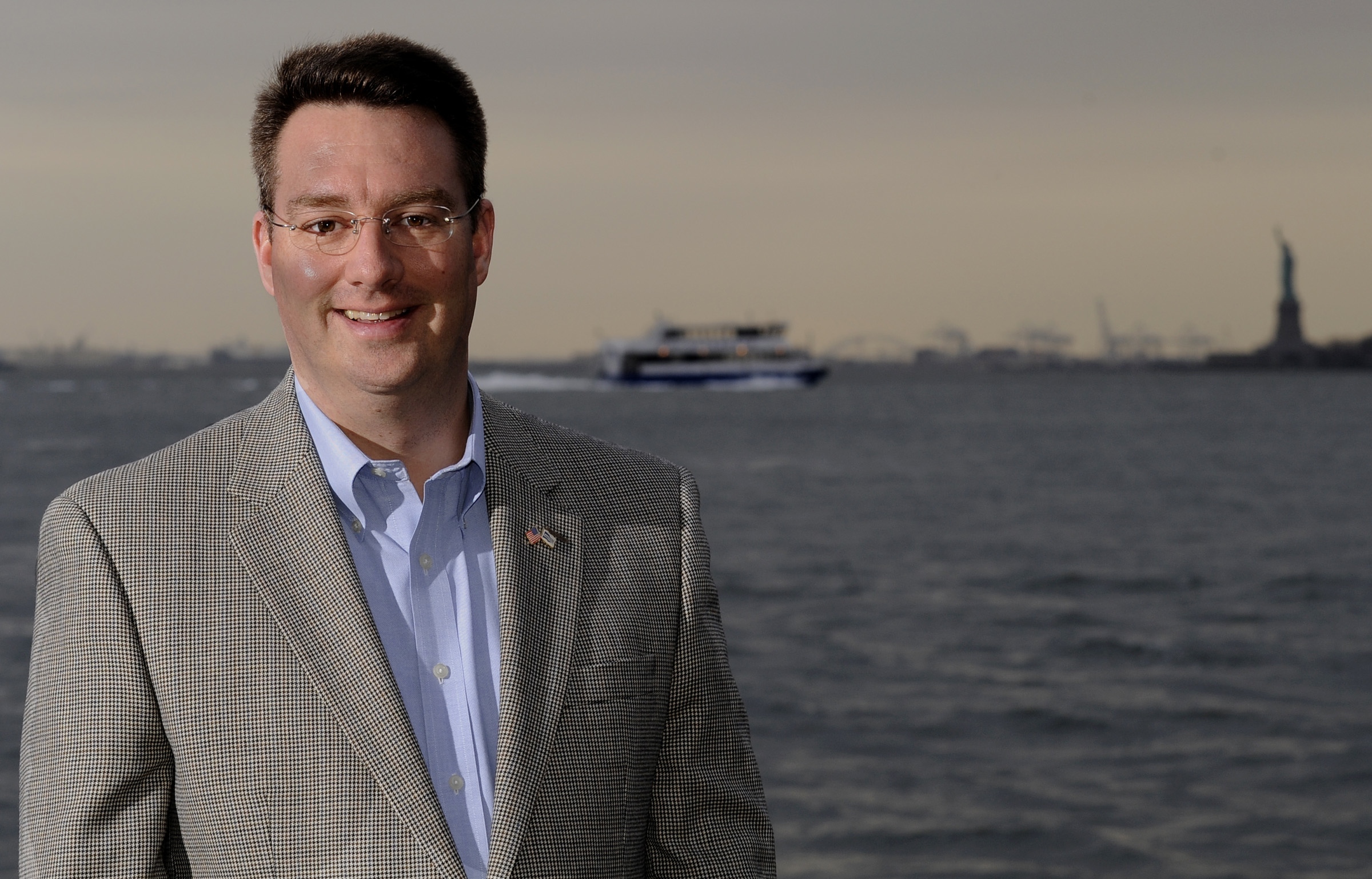Every so often, we’ll chat with an alum about what they do and how they got there. Today we’re talking with Benjamin Strong ’01, Emergency Health Services, ’04, M.S., Emergency Health Services, about his career with the United States Coast Guard.
Name: Benjamin Strong
Job Title: Director, Amver Maritime Relations
Employer: United States Coast Guard
 Q: Tell us a little about how you wound up at UMBC. What’s your background?
Q: Tell us a little about how you wound up at UMBC. What’s your background?
A: I took the “long route” to UMBC. I enlisted in the Air Force after high school, completed my tour in 1991 and began working as a paramedic in Prince George’s County, Maryland. In the late 90’s I learned about the Emergency Health Services Management program at UMBC and came to take a tour. I ended up enrolling in 1998.
Q: Will you tell us about your career on the U.S. delegation to the Emergency Prevention, Preparedness and Response Working Group of the Arctic Council?
A: My work on the Arctic Council Emergency Prevention, Preparedness and Response Working group is an extra duty to my day job with the United States Coast Guard. My specialty is encouraging commercial ships to assist the Coast Guard in search and rescue cases around the world. In fact, it was one of our partnered ships that was first to begin searching for the missing Malaysian plane in the South Indian Ocean.
My job with the EPPR working group is to encourage commercial ships to assist in search and rescue in the Arctic. There are a finite number of rescue resources in the Arctic and we have to rely on our partners to help in times of trouble. I also work to encourage our Arctic national partners to request Amver information when they are managing a search and rescue case. It’s all about leveraging partnerships in the name of safety.
Q: Were there any lessons you learned, in particular, at UMBC that you have carried with you into your work?
A: I would have to say the main lesson I learned was leveraging partnerships. The Emergency Health Services department was unique in that we had several important partnerships both on and off campus. As a student I had to partner with the Political Science department to marry up my Certificate in Public Administration and Policy with my EHS bachelors. I had to partner with the EHS department alumni to secure a relevant internship. Partnerships remain critical to my international work today.
Q: What has been the greatest success in your career? The greatest challenge?
A: The greatest success and the greatest challenge of my are really one event. I was finishing my undergraduate work in 2001, fulfilling a requirement for an internship with the Federal Emergency Management Agency when the September 11 attacks occurred. I deployed to New York City to assist in both rescue efforts and the administrative response as part of an Urban Search and Rescue Incident Support Team Member. Despite the tragic losses I’m proud I was able to both serve my nation during the response and meet the obligations to graduate in December of 2001. I have to thank my advisors and professors in the EHS department as well, without their flexibility I never would have been able to balance my work during the response with my responsibility to UMBC.
Q: Is there a particular class or professor at UMBC who really inspired you?
A: Yes! Bill Hathaway was an EHS professor. He was a character; an Army veteran. He was the professor that convinced me I could attend college as an adult student and succeed. He gave me a tour of the campus and walked me down to admissions to ensure I had all the application materials. He was remarkable.
Q: What advice would you give to students considering UMBC?
A: UMBC is the perfect balance between a large school and a more intimate campus. UMBC has great services on campus but is located perfectly between Baltimore and Washington, DC. Get into the community! The UMBC area offers opportunities for incredible internships, and a quality internship is key to making you stand out when applying for a job or looking for graduate opportunities.
Have a story of your own to share? Tell us about it.
Tags: Air Force, arctic council, Benjamin strong, career q&a, Emergency Health Services, emergency preparedness, USCG

